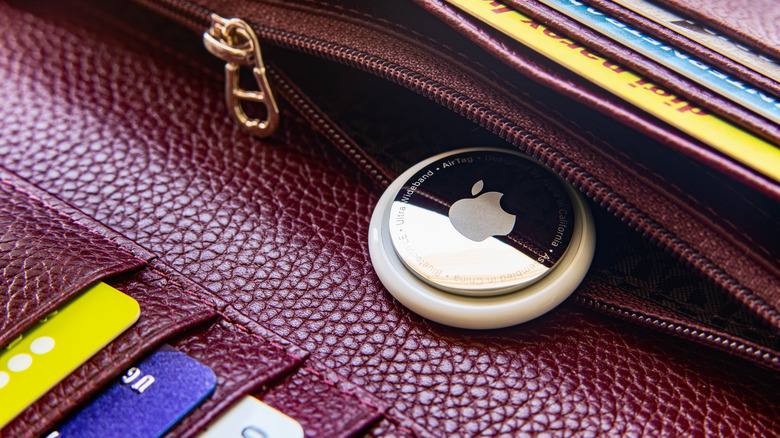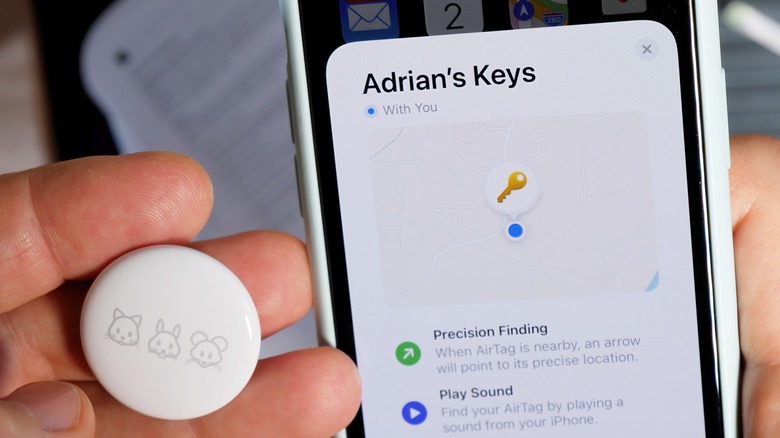Google And Apple Team Up To Combat Location Tracker Abuse
Apple and Google have locked horns over the years, but sometimes, the two aren't shy to do mutually beneficial business, whether monetarily or for good causes. Today, the tech giants have joined forces to combat the misuse of Bluetooth location-tracking devices for unwanted tracking. These trackers are conveniently small, as their chief purpose is to hide within belongings or attach to sensitive personal items to help you find them, like your keys and wallet. But perpetrators have misused the tech to track unsuspecting people by secretly slipping products like Tile and AirTags into their victims' bags, cars, or other belongings.
Apple started chipping away at solutions to address these concerns early in 2022 after rampant reports of AirTag stalking. The joint proposal outlines a new wireless industry specification that will enable smartphones to detect when devices that don't belong to you are nearby. The detection will prompt alerts on Android and iOS devices. "Bluetooth trackers have created tremendous user benefits, but they also bring the potential of unwanted tracking, which requires industrywide action to solve," said Dave Burke, Google's vice president of Engineering for Android.
Apple says the initial specification was drafted with insight from digital safety and privacy advocacy groups. The National Network to End Domestic Violence has pushed for such universal standards to protect abuse victims. "These new standards will minimize opportunities for abuse of this technology and decrease the burden on survivors in detecting unwanted trackers," said NNEDV senior director Erica Olsen.
What happens next?
The proposed specification has been submitted as a draft via the Internet Engineering Task Force (IETF), a leading standards development organization. The group invites interested parties to comment on the issue over the next three months. The initiative has already drawn support from major industry stakeholders, including Samsung, Tile, Eufy, Pebblebee, and more. With such strong backing, that list will surely grow as more manufacturers ensure they're positioned on the right side of the war to protect their consumers.
More than that, they're likely motivated by the potential to dodge legal trouble that could impact their brand image and bottom line. Apple is no stranger to the litigious headaches these trackers can cause. Following the comment period, Apple and Google will address feedback and release a production implementation of the specification for unwanted tracking alerts by the end of 2023. The companies will then implement these frameworks into Android and iOS.
The draft outlines technical specifics, such as the wireless connection protocols manufacturers must use and how they implement the broadcast radios in these devices. It also includes language that suggests Google and Apple might launch official certifications to help separate products that adhere to the new standards. The spec will provide clear instructions for device manufacturers to implement these protective measures. Ideally, all interested parties will quickly bolster their products to facilitate the changes.

